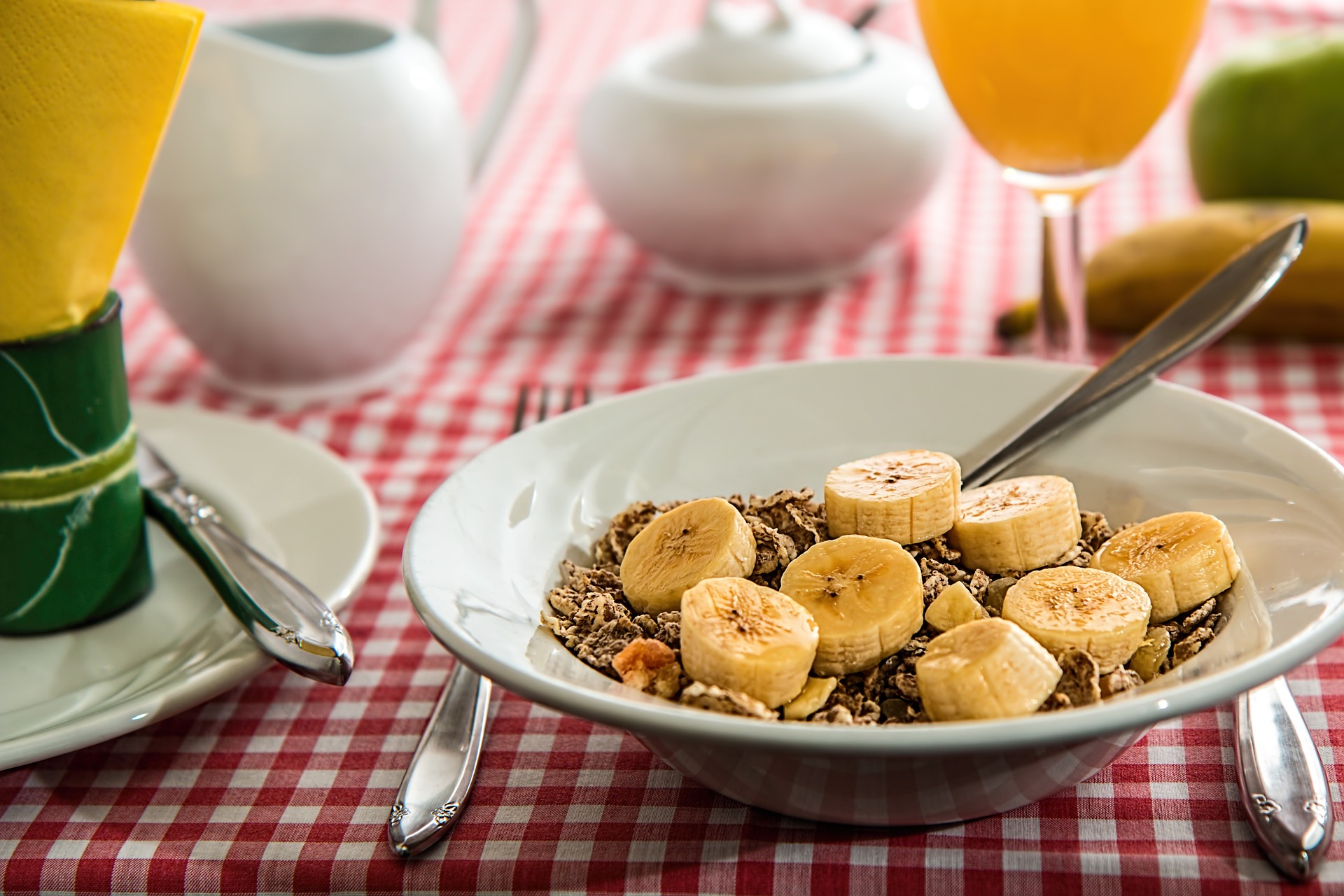
Dietitian Sharan Sodhi, Head Consultant Dietitian of Diet & Nutrition Department of Reach Out at Sir Ganga Ram Hospital, Rajinder Nagar, New Delhi
(Editor’s Note: This is the third part of Diet And Nutrition During COVID-19 by Dietitian Sharan Sodhi. Click to read Part 1 and Part 2 of the series.)
Fears about COVID-19, can take an emotional toll, especially if you’re already living with an anxiety disorder. But you’re not powerless. These tips along with Nutritional Advise can help you get through this stressful time.
Understanding Your Anxiety
We’re in the midst of a worldwide pandemic. Some of us are in areas that have already been affected by coronavirus. Others are bracing for what may come. And all of us are watching the headlines and wondering, “What is going to happen next?”
We don’t know how exactly, we’ll be impacted or how bad things might get. And that makes it all too easy to catastrophize and spiral out into overwhelming dread and panic. But there are many things you can do—even in the face of this unique crisis—to manage your anxiety and fears.
Stay Connected—Even When Physically Isolated
Social distancing comes with its own risks. Humans are social animals. We’re hardwired for connection. Isolation and loneliness can exacerbate anxiety and depression, and even impact our physical health. That’s why it’s important to stay connected as best we can and reach out for support when we need it, even as we cut back on in-person socializing.
- Make it a priority to stay in touch with friends and family. If you tend to withdraw when depressed or anxious, think about scheduling regular phone, chat, or Skype dates to counteract that tendency.
- While in-person visits are limited, substitute video chatting if you’re able. Face-to-face contact is like a “vitamin” for your mental health, reducing your risk of depression and helping ease stress and anxiety.
- Social media can be a powerful tool—not only for connecting with friends, family, and acquaintances—but for feeling connected in a greater sense to our communities, country, and the world. It reminds us we’re not alone.
- That said, be mindful of how social handles are making you feel. Don’t hesitate to mute keywords or people who are exacerbating your anxiety. And log off , if it’s making you feel worse.
- Don’t let coronavirus dominate every conversation. It’s important to take breaks from stressful thoughts about the pandemic to simply enjoy each other’s company—to laugh, share stories, and focus on other things going on in our lives.
Why Do We Get Stressed?

When we encounter something stressful, our nervous system and adrenal glands send signals to the rest of the body to prepare it for a physical response. The symptoms we experience when we get stressed- such as increased heart rate and heavy breathing – are best described as physiological responses designed to ensure our survival. This hard wired ‘fight or flight’ reaction may have been necessary millions of year ago when survival meant facing life or death threats, but in the modern world where these types of threats are significantly less, it can have a negative impact on our health.
At times of perceived danger, physiological changes trigger hormone to increase the heart rate and blood pressure and deliver more oxygen and glucose to important muscles. This prioritising of physical functions over less urgent functions such as digestions means our body has the power to face an enemy or flee. Our immune system is activated, breathing is accelerated and the heart moves into overdrive to supports the body.
In the modern world where real threats to our survival are rarely presents, day to day things such as relationship issues, traffic jams and demanding children can trigger the body’s flight or fight reaction. The more exposure we have to these stressors, the more intense and frequent our physiological reactions become until we find ourselves feeling constantly on the edge. For those who do not adapt their lifestyle to cope, and “burn off” the effects of their triggered response system, stress can build up and become health problems.
Effects Of Stress
If you are feeling stressed, it is very likely that you have experienced the following psychological and physical changes.
- Effects of stress on the mind:
- Mood swings
- Agitation and irritability
- Anxious or racing thoughts
- Feeling tearful
- Becoming withdrawn
- Loss of concentration and focus
- Effects of stress on the body:
- Muscle tension
- Nausea / dizziness
- Appetite fluctuations
- Increased heart rate / palpitations
- Increases blood pressure
- Disturbed sleep / insomnia
These are typically the initial signs that stress is becoming a problem. If it is not effectively managed or treated, it can become chronic, and over time cause serious harm. Long term illness such as depression, diabetes, cardiovascular problems and digestive problems may start to develop, so it’s crucial that you seek help as soon as you recognise the signs.
Stress And Digestion

The effects of stress on our eating and digestion can be significant, leading to appetite fluctuations and digestive problems like irritable bowel syndrome. This is because the activated flight or fight response in the central nervous system immediately shuts down digestion – restricting blood flow, slowing the contractions of the digestive muscles and the decreasing secretion needed for digestion. This is so that the body can prioritise more important functions, such as heart and breathing rate in order to prepare the body to attack or escape from perceived threat.
After a stressful period, the human body can go into recovery mode where appetite is increased and food craving take hold. At the same time, the metabolic rates will drop to converse energy, which means the body is more likely to store fat – particularly around the abdomen. Feeling stressed also leads to an increase in levels of cortisol, which is a hormone that contributes to weight gain.
Alternatively, chronic stress can suppress appetite, which can lead to weight loss. This may also be linked to nervous movements such as pacing, ticks and leg shaking. While some completely shut down when they are feeling stressed, others unintentionally move more.
Stress And Diet
Stress and diet have always been linked. It’s possible that someone eating a healthy, balanced diet is going to be far less stressed than someone eating a poor less stressed than someone eating a poor diet. If you’re feeling overly stressed, your digestive system is probably under a great deal of strain – making changes to your diet could be key to feeling better physically and emotionally. Below is an overview of stress relieving foods to include in your diet and certain foods to avoid which may help to improve symptoms
Foods that can have negative effects on the body when under stress include
Caffeine
A chemical found mostly in tea, coffee and some soft drinks; caffeine reduces our ability to deal with stress. This is because it acts as a stimulant, causing the adrenal glands to release more hormones like cortisol (which are already high due to the strain our bodies are under). High levels of caffeine also contribute to insomnia and nervousness, which are intrinsically linked to stress. Caffeine consumption can also deplete levels of magnesium (needed for energy production) and metabolism-boosting B vitamins from the body. Substituting coffees and teas for herbal varieties can help reduce your caffeine consumption, and it helps to be mindful of caffeine content in foods such as chocolate.
Foods high in fat and sugar
Cravings for processed and sugary foods may be heightened when you are feeling stressed, but it is important to avoid consuming these in high quantities. Not only can they be detrimental to your overall health, but they can also make you feel worse in the long-term. Sugar, for example, will provide a short burst of energy and temporary relief from stressful feelings, but this will be swiftly followed by a ‘low’ period when your blood sugar levels crash. This can lead to irritability and increased food cravings, which can put a strain on the body.
According to a study published in the British Journal of Psychiatry, high consumption of processed fats can increase the risk of depression. Researchers found that people with diets high in processed fats had a 58% higher risk of depression than those who ate whole foods. Furthermore, processed foods contain high levels of hydrogenated or oxidised fats which can block the production of essential fats needed to protect the cell membrane and nerve health.
Alcohol
Many people turn to alcohol as a means of dealing with stress. While it may have an instant calming effect on the body, in the long-term alcohol increases the amount of stress in people’s lives. Drinking heavily can lead to complications such as addiction and can take a toll on overall health and well-being. Sleep problems, nervousness and skin irritations are common side effects of drinking because alcohol makes the body release larger amounts of adrenaline and affects blood sugar levels.
Stress-relieving foods to eat more of
Fruits and Vegetables

Eating a diet rich in fresh fruit and vegetables will ensure you get plenty of nutrients and minerals, which is crucial when your body is feeling stressed and using more nutrients than it would normally. Chronic stress can weaken the immune system and affect the body’s defences – leaving a person more susceptible to infection and disease. If a stressed person becomes ill, this will put the body under more strain. Aim to eat at least five portions of fruit and vegetables a day to get a sufficient amount of vitamins and minerals, and focus on foods containing vitamins B, C and magnesium.
- B vitamins – Found in bananas, leafy greens, nuts, seeds, meat, fish and dairy products, these provide the body with energy after a period of stress.
- Vitamin C – The largest store of vitamin C lies in the adrenal glands, which are responsible for the production of stress hormones. Keep these healthy by eating plenty of vitamin C rich foods such as oranges, tomatoes, peppers, leafy greens and broccoli.
- Magnesium – This mineral can help to relax muscles and reduce anxiety, while also playing an essential role in hormone and energy production.
- Nuts, beans and lentils, whole grains and leafy greens
Healthy Snacks
Eating healthy snacks throughout the day, such as fruit, raw vegetables, yoghurt, nuts and seeds will keep your blood sugar levels stable and your metabolism functioning smoothly. On stressful days it is important to eat little and often to minimise peaks and drops in energy levels, and this includes eating a nutritious, filling breakfast in the morning. For some people, stress can make them skip or forget to eat their meals, and this increases the likelihood that they will reach for processed or sugary foods when they are:
Complex carbohydrates
Eating whole, unprocessed carbohydrates such as wholegrain bread, pasta and cereals, as well as oats and brown rice will help to enhance levels of serotonin – the mood-boosting hormone that helps you to feel happy and more relaxed. Low levels of serotonin in the body are linked to anxiety and depression, as well as poor quality sleep; so keeping this hormone in balance is key for dealing with stress. In addition, complex carbohydrates are digested more slowly than refined, processed varieties, which can help stabilise blood sugars.
Essential fatty acids (EFAs)
Essential fatty acids (Omega 3 and 6) are vital nutrients, which help the body to function effectively – particularly the brain. EFAs also help to moderate the effects of psychological and physical stress. This is because they lower the release of glucocorticoids (hormones released from the adrenal gland) under stressful conditions. To get the right balance of EFAs in your diet, eat sources such as oily fish, nuts and seeds.
Calcium-rich foods
Research into stress and diet shows that calcium may be able to help reduce certain symptoms, such as muscle tension and anxiety. Therefore, including plenty of calcium-rich foods in your diet (such as low-fat milk, yoghurt, sesame seeds, kelp, cheese, leafy greens and broccoli) may be beneficial. Eating these in the latter part of the day is thought to help with absorption.
How can a Dietitian help with stress and diet?
Seeing a professional such as a nutritionist is helpful if you want to make long-term positive changes to your diet and manage stress. A nutritionist will provide tailored nutritional advice and support to ensure all your needs are catered for and your specific goals are met. This will involve an assessment to pinpoint your nutritional needs and what stress relieving foods will be the most beneficial for you.
As part of your assessment, you will look at triggers and contributing factors, as well as any underlying imbalances such as adrenal hormones and thyroid problems. Following this, you will likely be given a specific eating plan to follow, which may also outline lifestyle changes such as physical activity, which will play an important role in stress management for the long-term.











